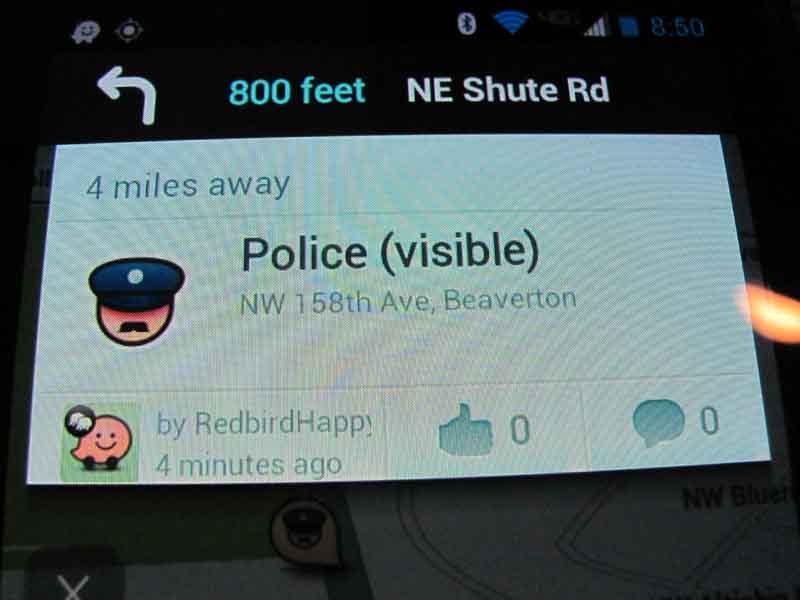
Los Angeles Police Chief Charlie Beck has stepped in it – big time. Beck sent a letter to Google vehemently objecting to its cellphone app, Waze, which routes drivers to and from various destinations in real time via GPS.
What upsets Beck is a particular feature warning drivers of police presence on the highway, causing traffic to slow down and react cautiously. Waze also warns drivers of objects on the road, lane closures, vehicles stopped on shoulders, as well as fog and rain.
What’s the problem? Does he intend to give Waze free publicity? When I worked back East as a professional driver for a limousine service, Waze turned out to be a godsend. Many times, it would instantly reroute me away from traffic jams whenever a time-saving detour could be found. Another advantage: it accurately advised me what lane to move into before an unexpected mind-altering exit. And when you plug in a street address, pinpoint navigation guides you whenever a business destination is located inside a shopping center.
Beck lives in a West Coast vacuum. He has no clue that back East, police cruisers are routinely stationed in a visible location to serve as a traffic-calming ploy. And once Google acquired Waze for $966 million in 2013, its Google maps application improved.
Beck doesn’t want to give up his cause célèbre easily. He points out that the alleged assassin of two policemen in New York City had a screenshot of the Waze app on his Instagram account a couple hours before the crime was committed. But don’t criminals utilize all the technological advantages available anyway?
What about a woman driving alone who realizes a car is following her? Wouldn’t knowing where a cop was stationed help her? What happened to the Los Angeles slogan – “to protect and serve” – that appears on each patrol car? And don’t be lulled into thinking Waze reveals all police presence, because it doesn’t.
Waze utilizes Facebook interactivity to allow users to post highway conditions. The more people that use it, the better it becomes. Reuters’ story on the Huffington Post reports that law enforcement in general favors letting drivers know of impending police presence.
And for cops who prey on unsuspecting drivers haphazardly wandering into a “speed trap,” a little disclosure is a good thing. I remember monitoring a college student from the University of Virginia whom I cautioned to stick to the posted speed limit because of my Waze app. Within mere seconds, he passed a parked squad car whose occupant was using a laser gun to nab out-of-towners.
Law enforcement is supposed to work for us, not against us. And we’re deeply mired in an era where terrorists are gunning for honest Americans here at home.
When I drove from the East Coast to Oregon, Waze kept Alice and me safe. It’s consistently accurate and constantly updating, which is more than I can say for Verizon’s Navigator, Google Maps or even Garmin. And the best part: it’s free!
I’m glad Google is not rolling over because of the L.A. police department’s opposition. It makes me glad I live in Oregon, too. We need more disclosure, not less. Are we going to make criminals of truck drivers who warn other truckers of speed enforcement ahead? Should a driver be cited for flashing his lights to warn oncoming motorists about a hidden patrol car?
Let’s get real. Braving today’s traffic requires a cooperative effort from all concerned.
Good column, Mason!